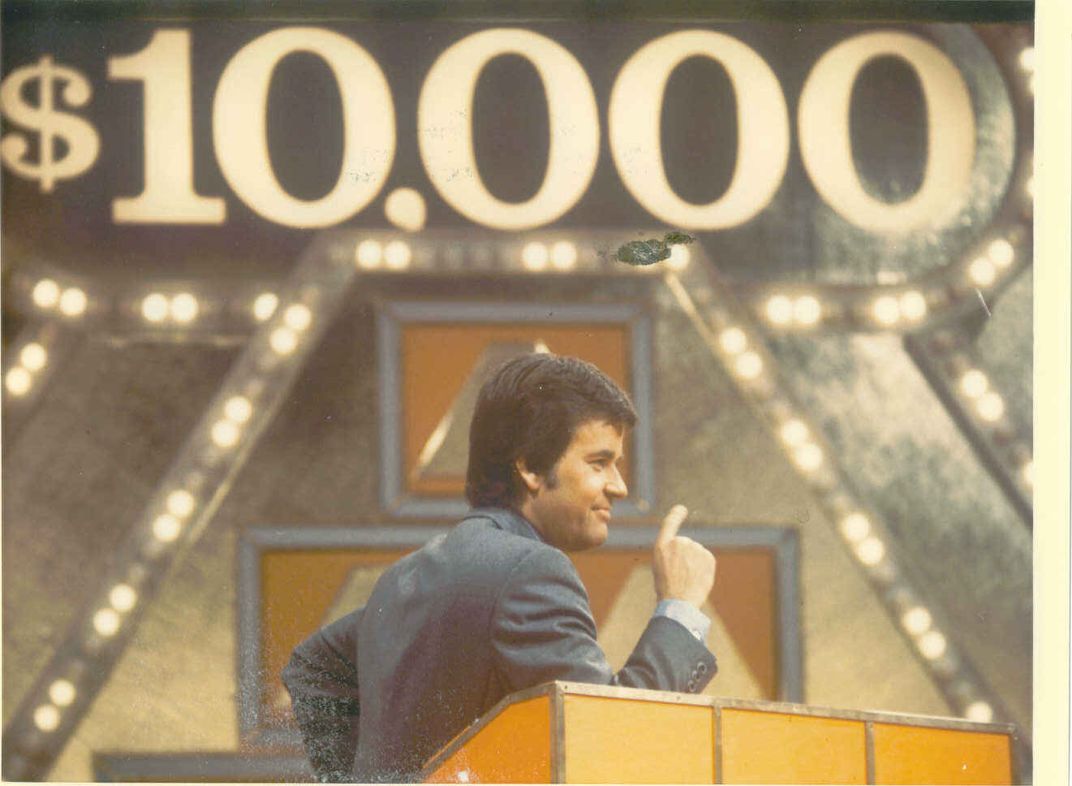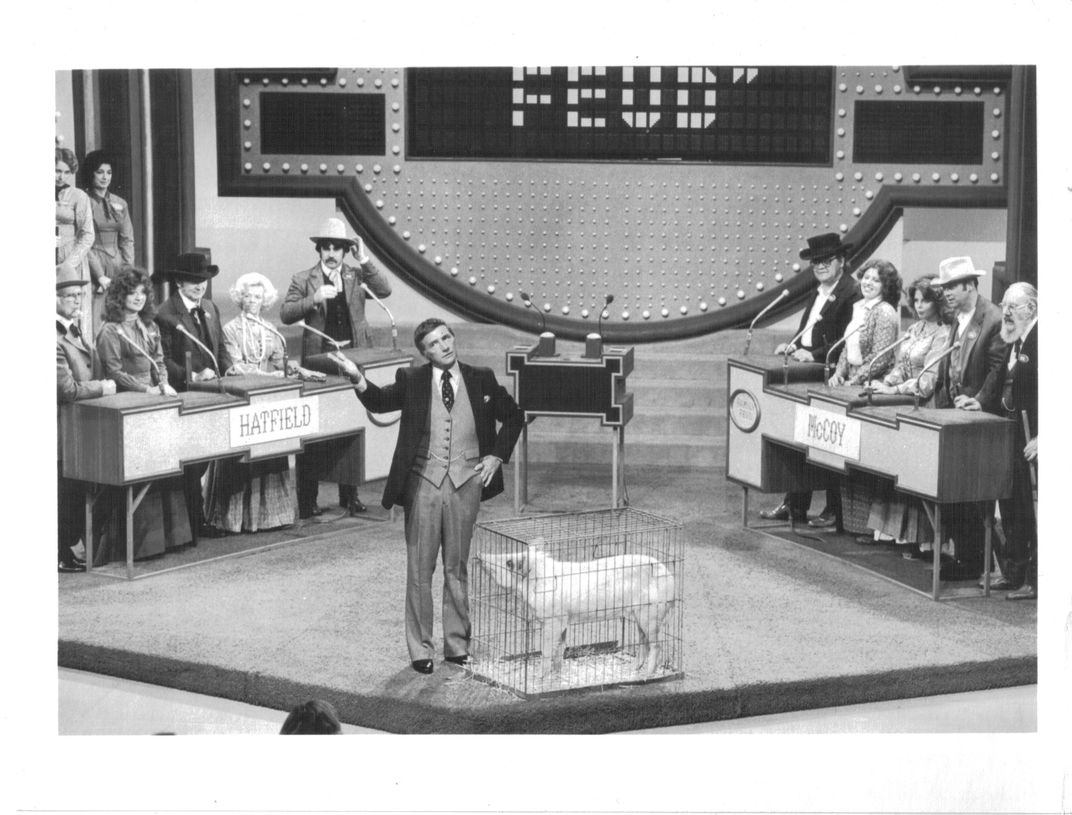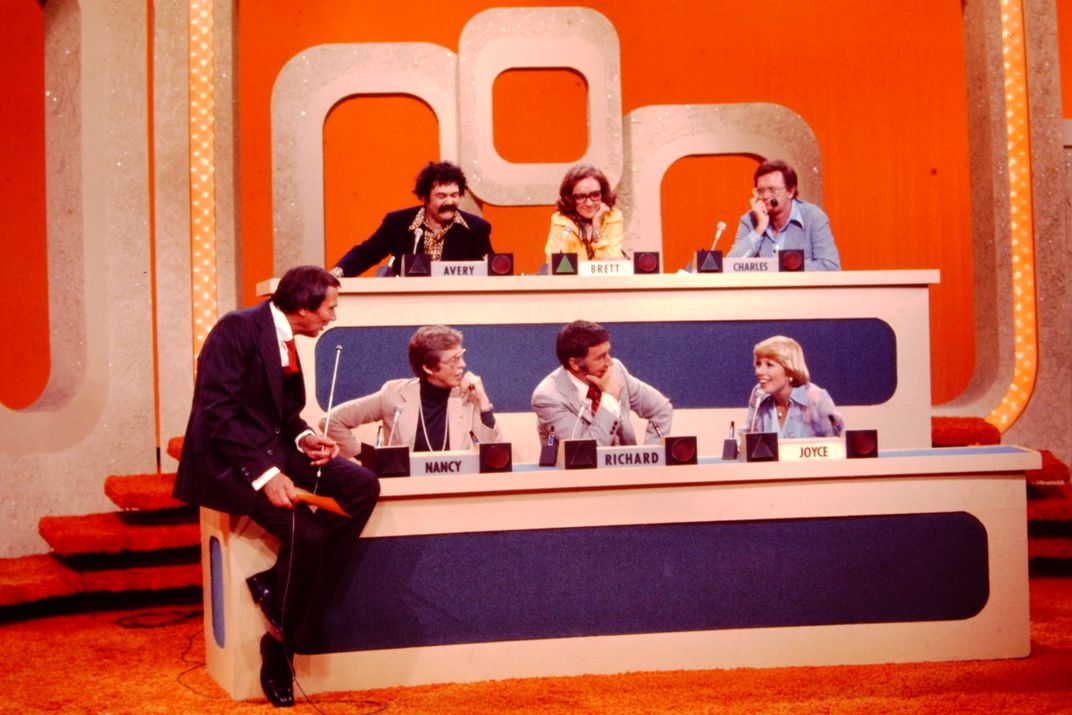From ‘Jeopardy’ to ‘Wheel of Fortune,’ Archive Will Preserve Game Show History
A new collection at the Strong National Museum of Play in New York will celebrate America’s beloved prime-time competitions
:focal(2260x998:2261x999)/https://tf-cmsv2-smithsonianmag-media.s3.amazonaws.com/filer/5f/a4/5fa40506-dac5-467b-923f-763f54feb098/early_jeopardy.jpeg)
Game shows have tested Americans’ wits under pressure since the early 1920s, when listeners tuned in to radio programs that found contestants battling for a $25 prize. With the rise of prime-time television in the mid-20th century, competitions such as these proliferated—and today, the stakes continue to climb: Ken Jennings, who broke records by winning 74 consecutive games of “Jeopardy!” in 2004, has raked in a whopping $5.2 million in game show earnings to date.
Now, reports the Associated Press (AP), game shows are set to receive an archive of their own at the Strong National Museum of Play in Rochester, New York. Curators of the first-of-its-kind National Archives of Game Show History plan to gather ticket stubs, photographs, set pieces and other memorabilia that document the riveting story of one of television’s most popular genres, the museum announced in a statement last week.
As Neil Vigdor reports for the New York Times, the archive is co-founded by television producers Howard Blumenthal of “Where in the World Is Carmen Sandiego?” and Bob Boden of “Funny You Should Ask.” The Strong, a museum dedicated to gaming and play in pop culture, also boasts the World Video Game Hall of Fame and the National Toy Hall of Fame.
Artifacts from the newly formed archive will go on display sometime in 2023, a spokesperson tells Marcia Greenwood of the Rochester Democrat and Chronicle. The institution is currently undergoing a massive expansion project that will add 90,000 square feet of space to its grounds—part of a $60 million renovation campaign, per the Times.
Individuals interested in donating materials to the archive can contact Chris Bensch, the Strong’s vice president, at [email protected]. Bensch tells the Times that he hopes to score big pieces from mainstays of American game show history, such as the wheel or letter board from “Wheel of Fortune” or one of Vanna White’s iconic dresses.
Curators plan to conduct oral history interviews with game show developers, technicians, crews, hosts and iconic contestants. They’ll seek out artifacts from all-time hit shows, such as “The Price Is Right” and “Family Feud.” Officials will also collect sources that delve into a notorious 1950s rigging scandal that threatened to end prime-time quiz shows permanently, according to PBS.
Voicing his support for the new archive, contestant-turned-host Jennings tells the Times that a game show archive is overdue. Just like comic books, he notes, televised competitions and their history offer insights into popular culture throughout 20th-century American history.
“I’ve often said that game shows, like jazz and comic books, are one of the great American art forms, but they have always been considered by many to be a disposable genre,” says Jennings in the statement. “I am delighted by this new effort to take game shows seriously and to archive and preserve their history.”
The “Jeopardy!” champion, for his part, has offered a donation of his own, reports the Times: the necktie he was wearing when he finally lost to real estate agent Nancy Zerg.
In 2013, the late “Jeopardy!” host Alex Trebek selected several artifacts to donate to the Smithsonian Institution, including a buzzer and a script with handwritten notes from one of his first-ever shows in 1984. Speaking with Leah Binkovitz of Smithsonian magazine at the time, Trebek credited the show’s success to the enduring appeal of the so-called American dream.
“It’s a quality program and it appeals to the aspects of American life that are very important to us: opportunity, we give everyone an opportunity to compete even if you’re an ordinary citizen,” Trebek noted. “It doesn’t matter what your background is, you can compete on our program and do well if you have knowledge.”
The host added, “You can [also] fulfill one of the American dreams, which is to make a lot of money.”
/https://tf-cmsv2-smithsonianmag-media.s3.amazonaws.com/accounts/headshot/nora.png)





/https://tf-cmsv2-smithsonianmag-media.s3.amazonaws.com/accounts/headshot/nora.png)